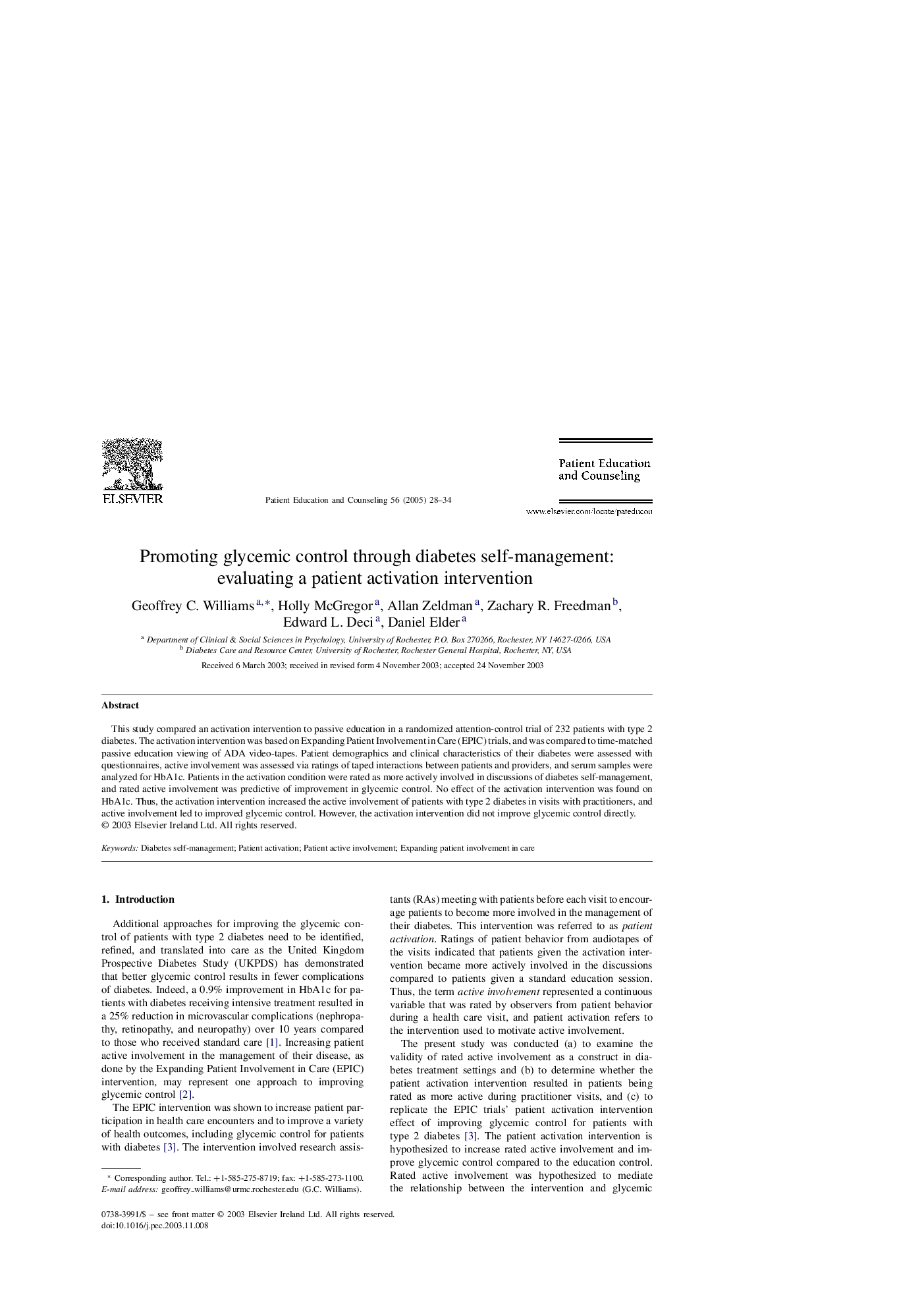| Article ID | Journal | Published Year | Pages | File Type |
|---|---|---|---|---|
| 9301949 | Patient Education and Counseling | 2005 | 7 Pages |
Abstract
This study compared an activation intervention to passive education in a randomized attention-control trial of 232 patients with type 2 diabetes. The activation intervention was based on Expanding Patient Involvement in Care (EPIC) trials, and was compared to time-matched passive education viewing of ADA video-tapes. Patient demographics and clinical characteristics of their diabetes were assessed with questionnaires, active involvement was assessed via ratings of taped interactions between patients and providers, and serum samples were analyzed for HbA1c. Patients in the activation condition were rated as more actively involved in discussions of diabetes self-management, and rated active involvement was predictive of improvement in glycemic control. No effect of the activation intervention was found on HbA1c. Thus, the activation intervention increased the active involvement of patients with type 2 diabetes in visits with practitioners, and active involvement led to improved glycemic control. However, the activation intervention did not improve glycemic control directly.
Related Topics
Health Sciences
Medicine and Dentistry
Medicine and Dentistry (General)
Authors
Geoffrey C. Williams, Holly McGregor, Allan Zeldman, Zachary R. Freedman, Edward L. Deci, Daniel Elder,
